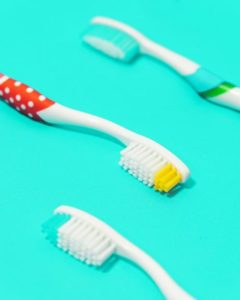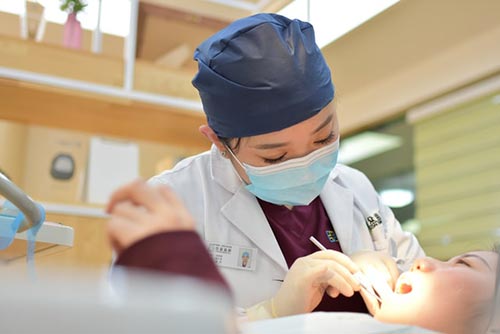How Often Should I Brush My Teeth?
 Proper dental hygiene plays a critical role in sustaining an overall state of well-being. The question of “how often should I brush my teeth?” may seem simple; however, it’s a little more complicated than you might think. Your diet and daily habits will determine the frequency at which you should brush your teeth for starters.
Proper dental hygiene plays a critical role in sustaining an overall state of well-being. The question of “how often should I brush my teeth?” may seem simple; however, it’s a little more complicated than you might think. Your diet and daily habits will determine the frequency at which you should brush your teeth for starters.
High risk to dental issues
An example would be those who smoke cigarettes need to brush their teeth more than someone who is smoke-free. This is a true statement as cigarette smoke covers your teeth in harmful substances like tar.
Aside from the frequency at which you brush your teeth, you also need to use the correct brushing method. Applying too much force when brushing your teeth can damage them further. Light and gentle strokes are the best way to clean any food particles or substance build-ups on your teeth.
How often should I brush my teeth?
As per the American Dental Association, you should brush at least twice a day. The timing at which you decide to brush isn’t necessary; however, if you want to brush your teeth after eating, you should wait at least 30 minutes. The recommendation is that you brush before each meal and before bed.
Brushing alone isn’t going to solve your dental hygiene problems. A proper dental hygiene routine consists of first brushing, then flossing, and finally rinsing your mouth out with an antiseptic. Regardless of when you brush your teeth, remember the 30-minute rule.
How long to wait after brushing your teeth
If you brush before you eat, wait 30 minutes until you eat, if you brush after, wait 30 mins before consuming any liquids or solids. In case you’re wondering, alcohol-free mouthwash is best, you should also try to use fluoride toothpaste as much as possible.
To achieve maximum dental health, try to get a professional cleaning at least twice a year. Professional dental cleanings act as a preventative against tooth decay and deterioration.
Making sure your teeth stay white for a long time
Forgetting to brush every once in a while is normal; however, once it becomes a habit, you need to implement strategies to ensure you stay on track. Try to set a timer on your phone to be reminded of when to brush your teeth without having to think about it.
To answer the question is, twice a day minimal. If you can manage to brush your teeth at least three times a day, that’s even better.
People Also Ask
Q: Is brushing your teeth three times a day too much?
A: brushing your meal at least three times a day or after each meal has shows no signs of damage to your teeth. Remember, brushing your teeth hard or roughly can damage you, regardless of the frequency at which you brush them.
Q: Is it OK to brush once a day?
A: While it’s recommended that you brush your teeth at least two times a day, cleaning them once in an adequately timed manner is also acceptable. The more you brush your teeth, the healthier they will become over time, so try to brush them two times a day.
Q: Is it better to brush before or after breakfast?
A: The short answer is before breakfast; this allows your teeth to be cleansed of any build-up before adding more one. If you want to brush after breakfast, wait at least 30 minutes.
Understanding how often should I brush my teeth
Use this article to help stay on top of your oral health to avoid issues like cavity formation, root decay, staining, and more. Brushing your teeth is one of the simplest ways to maintain a healthy mouth and good health in general, don’t take it for granted. Contact Dr. Dalesandro for dental services in Tucson, Arizona.
Frequently Asked Questions
Does a root canal hurt?
What does an abscessed tooth feel like?
What would be considered a dental emergency?
Why are my teeth so bad even though I brush?
How long do dental implants take to heal?
Can gum disease cause cancer?
How much do braces cost?
How Long Can a Cavity Wait to Get Filled?
 Root canals are commonly performed on individuals suffering from severe teeth rot due to cavities or other conditions. By the time you get to the root canal phase, it’s not an optional procedure; it’s mandatory. Root canals are also required when your teeth become infected to where natural tooth decay will occur.
Root canals are commonly performed on individuals suffering from severe teeth rot due to cavities or other conditions. By the time you get to the root canal phase, it’s not an optional procedure; it’s mandatory. Root canals are also required when your teeth become infected to where natural tooth decay will occur.